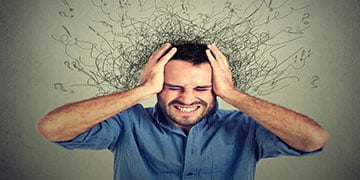Insomnia & Sleep Problems
Richard2023-02-10T12:00:59+00:00
By
Richard
Hypnosis, Hypnotherapy, Insights, Issues that hypnotherapy can help treat, Self Help, Therapy
Comments Off on Insomnia & Sleep Problems
Insomnia & Sleep Problems
When your insomnia and sleep problems are taking over your life, contact Clinical Hypnotherapy Cardiff to treat your nocturnal awakening and the issues that are causing it.Below are a series of articles on insomnia & sleep problems that can help you understand the nature of your insomnia. For more help, contact Richard J D’Souza to resolve all aspects of your sleeplessness.Insomnia: Using Hypnotherapy to treat insomnia & sleep problems
Insomnia: Relax in your day to help treat your insomnia
Insomnia: Resolve your anxieties with visualisation
Insomnia: Treat your Insomnia by taking “sleep” to bed with you
Insomnia: Learn self-hypnosis to help you sleep
Insomnia: Getting to sleep
Insomnia: Waking up in the night
Insomnia: Restless sleep
Insomnia: Relax in your day to help treat your insomnia
Insomnia: Resolve your anxieties with visualisation
Insomnia: Treat your Insomnia by taking “sleep” to bed with you
Insomnia: Learn self-hypnosis to help you sleep
Insomnia: Getting to sleep
Insomnia: Waking up in the night
Insomnia: Restless sleep
Insomnia: Using Hypnotherapy to treat insomnia & sleep problems
How important is a good night’s sleep? Sleep is crucial for your health, your vitality and the maintenance of essential physiological and psychological processes. Various studies have demonstrated the part sleep plays in affecting cardio-vascular functioning, immunity, concentration and retention etc. Modern day living tends to run at a hectic pace and the quality of sleep is suffering.
Insomnia: Relax in your day to help treat your insomnia

Insomnia: Resolve your anxieties with visualisation
In my hypnotherapy practice, I meet many patients suffering with insomnia or some mild sleep-related issue. When they enter a course of hypnotherapy, an insomnia patient will have attempted a number different sleep tips. Some of those sleep methods have a scientific basis; others are desperate attempts to alter the feeling of hopelessness. Insomnia has a solid association with anxiety and depression. The relationship is often two-way; those who suffer with anxiety and depression also suffer with insomnia or some sleep-related problem.Hypnotherapy offers a number of techniques to treat insomnia. Hypnotherapy does more than just introduce a form of relaxation. If you suffer with insomnia and you want a better night’s sleep, then your mind can benefit by using visualisation to release those anxieties earlier in the day. This is one part of treating insomnia with hypnotherapy.

Insomnia: Treat your Insomnia by taking “sleep” to bed with you
In my hypnotherapy practice, I treat many patients who suffer with insomnia. By the time the insomnia sufferer enters their course of hypnotherapy, they have cornered themselves into a cycle of anxiety and hopelessness. The insomnia patient is desperate to break their deficient night ritual, but what really needs to be broken is their “desperation”.
Insomnia: Learn self-hypnosis to help you sleep
In my hypnotherapy practice, I regularly meet patients suffering with sleep-related problems. It’s reasonable to consider that their insomnia is linked to their anxiety and physical tension. At the beginning of the hypnotherapy course, their sleep ritual is drowned by frustration. The insomnia patient is being dictated by a night of misery that obstructs their mind. As a result, they create even more tension that further submerges any efforts to get to sleep. There are numerous ways to treat this insomnia. During my hypnotherapy consultation, I teach my insomnia sufferer self-hypnosis and breathing techniques to take them out of their negative cycle and focus them in the direction of a new sleep ritual.When a goal is constructed in a positive way, your mind is efficient at directing you towards the achievement of that goal e.g. “I want to create a deep state of calmness that will help me to sleep peacefully tonight”. However, the mind fails miserably to focus away from negatively constructed goals. Try “not” to imagine a blue sheep and your mind struggles with this concept. You think of the blue sheep and then your mind focuses on something else. As the insomnia patient who is stuck in your negative cycle, you are driving yourself to your unconscious negative goal. Your typical approach will be “I am cringing just thinking about going to bed for yet another night of restlessness!” So your mind creates an image of you lying in bed, wide awake and is very likely to achieve that negative unwanted state.How a goal is phrased also plays a part in its outcome. For the insomnia patient (and most general anxiety patients), you are making matters worse by using “anxious” language patterns e.g. must, should, have to, got to etc. Telling yourself that you’ve just “got to get to sleep tonight” is another way of taking tension to bed with you. Understandably, when a goal is phrased using this pattern of language, it reflects the desperation of the sufferer. Despair (and any negative emotion) however, generates the common stress responses and physical tension that harms your attempts to sleep. Your mind is very sensitive to what you are instructing it to do. So the insomnia patient is setting up another frustrating night of sleeplessness without realising they are “fuelling the fire”. Want, can, will, going to etc. are confident ways of structuring your language. This will help align your mind towards your desired state.Having recognised these adverse internal language patterns, you can then consider what methods will have the positive effect of helping you with your sleep ritual. Simply lying in your bed, waiting for your luck to turn, won’t help you control your sleep. Self-hypnosis is a technique that is comparable to other disciplines that use focused thinking e.g. meditation, yoga etc. Essentially, self-hypnosis or self-guided hypnotherapy uses three stages:- Relaxed breathing techniques
- Muscular relaxation and
- Visualisation

Insomnia: Getting to sleep

- Medical conditions – Cardiovascular conditions can make it challenging to get comfortable and control your breathing when in a lying position. Similarly, joint (arthritic) conditions can be painful when lying down.
- Medication – Some prescribed drugs can have a stimulating effect on the mind.
- Eating or drinking late – Problems with heartburn and reflux can be a symptom of eating late meals within an hour of going to bed. Drinking caffeine e.g. coffee or certain fizzy drinks at night can keep you awake.
- Late and extended napping – Dozing in the evening can upset your internal body clock. It can alter your natural tiredness responses that your mind would use to help you to go to sleep.
- Exercising late at night – When you exercise late in the evening, you produce Cortisol. This also has a stimulating effect on the mind and body.
- Working/studying late or doing shift work – Anything that requires intense concentration just before going to bed can put the mind on the alert. Working shift patterns e.g. days and nights can upset your body’s natural internal clock.
- Anxiety and stress – Stress also produces the chemical Cortisol. Taking your anxieties to bed generates physical tension for your body. This makes it more difficult for your mind to use natural relaxation responses when you go to sleep.
- Frequent changes to your bedroom – Retaining an amount of familiarity helps your mind to feel secure. Repeated changes to your bedroom can agitate your mind at night. Noise from neighbours or a partner that snores in bed can distract your own sleeping habits.
Insomnia: Waking up in the night
A positive sleeping habit is important for your health and general wellness. When you’re deprived of your sleep, you can experience tiredness, irritability and poor alertness. As an experienced registered hypnotherapist, I see several patients with some degree of insomnia. This can be the case even when it isn’t their main therapeutic purpose. At the beginning of a hypnotherapy course, some questions into my patient’s general lifestyle usually show that they are also having disrupted sleep patterns. Insomnia can be a symptom of anxiety and when your life is distressing; your sleep routine can be unbalanced.There are several kinds of insomnia. Some insomnia sufferers have problems going to sleep and others have intense dreams. Nocturnal awakening is the term used to describe irregular waking through the night. It is also used to characterise early waking with the inability to return back to sleep. This article deals with nocturnal awakening and how hypnotherapy can be used to treat it.Nocturnal awakening can be caused by a variety of ways:- Anxiety about being awake – Having woken from your sleep, worrying about this only makes it more difficult to go back to sleep again. ‘Sleep anxiety’ can then further disrupt your insomnia.
- Anxiety and depression – Any anxieties that you battle with in bed can leak into your dreams. Anxiety produces cortisol, a chemical that places your mind and body on the high alert.
- Medical conditions – Certain medical states can interfere with your sleep at night including heart, lung and arthritic conditions. Pain awareness can make it more of an effort to go back to sleep.
- Medication – Some medication can have a stimulating affect on your mind. If you have made the recent choice to withdraw from your sleeping tablets, your body needs time to adjust to the chemical changes.
- Alcohol – Drinking alcohol at night can alter the natural cycle of your REM sleep causing you to wake up early. Once you have woken up, you don’t have the sedating influence of the alcohol to get you back to sleep (unless you drink more!)

Insomnia: Restless sleep
The amount of sleep you are having is often judged to be the benchmark of a good night’s sleep. During a hypnotherapy consultation, insomnia patients will mention their frustration at the time they have waste trying to get to sleep. Insomnia sufferers can have issues getting to sleep (delayed onset insomnia) and problems with nocturnal awakening (repetitive waking or waking in the early hours and then staying awake). Sleeping through until it’s time to get up, but feeling worn out, is a more obscure form of insomnia since you can easily attribute your tiredness to other problems. With restless sleep, you are vulnerable to the same symptoms; exhaustion, irritability and loss of concentration. This article focuses on restless sleep and how hypnotherapy can treat this sleep problem.As well as feeling extremely tired by the morning, restless sleep can also involve overactive sleep patterns. You can be fidgety and talkative through your night’s sleep. You can also have vivid dreams that you “act out” in bed (which may disrupt your partner’s sleep!) These excessive states can cause you to jump up in bed feeling startled, with your heart rate pounding, your body in a sweat and you feel tense. Sometimes you sleep through the whole “anxiety show”, only to wake up feeling as if you have been running a marathon.These nocturnal episodes can indicate that your anxiety isn’t being dealt with properly in the daytime. When you have days that are stressful, unresolved problems and ongoing issues can get suppressed in your mind’s “temporary storage folder”. If these events build up without being dispensed, the storage folder can become strained. Then the next moment your conscious mind isn’t there to contain these events, the folder ruptures spilling the contents into your awareness. So if you haven’t had some relaxation time where those issues can be released, that next time will be when you go to sleep.Fortunately, your mind can process some of these events when you are daydreaming e.g. watching, but not really concentrating on the television. The mood of “night-dreaming” is more anarchic however. Your imagination is in charge and it likes to let off some steam!











